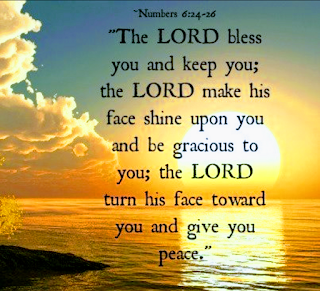Many are familiar with the words of “The Lord bless you and keep you; the Lord make his face shine on you and be gracious to you; the Lord turn his face toward you and give you peace.” Who cannot be moved by Rutgers beautiful music associated with this biblical blessing.
In this verse we come across another Hebrew word for Bless, Barack. It is used in various contexts to denote the act of blessing, which can be understood as invoking divine favour, expressing gratitude, or bestowing prosperity. The word can also imply the act of kneeling, which is often associated with worship or showing reverence. In the Bible, "barak" is used to describe God's blessing upon individuals, the blessings people bestow upon one another, and the blessings offered to God in worship.
But today, I want to concentrate on the concept of kneeling and blessing.
Kneeling down signifies humility, reverence, and submission, particularly in religious contexts and when expressing respect or deference. In many traditions, kneeling is a posture of worship, prayer, and reverence toward a higher power or authority. It can also symbolise vulnerability and seeking forgiveness, as seen in acts like praying on one's knees.
In Copenhagen there is the Church of Our Lady where you will find the great Thorvaldsen statues are. They are carved out of cold stone, but they look like warm, living personalities--so warm they melt your heart.
One statue of Christ stands with his arms extended. As you walk up to that statue it looks like Jesus has his eyes closed and you might think that he is in prayer. There is a notice that says, "You have to get on your knees to see his eyes." Only when on your knees and look up, do you see such grace and mercy and compassion in those eyes that it was almost more than one can bear.
The hymn by John Gowans that I bring to you may not be well known to you but I think captures the essence of what we have shared today.
Kneeling in penitence I make my prayer,
Owning my weaknesses and my despair;
Failure I cannot hide,
Broken my selfish pride,
Pardon thou dost provide,
Pardon declare.
Nothing can I achieve, nothing attain;
He that without thee builds labour in vain;
Shatter my own design,
Shaping a plan divine,
Come to this heart of mine,
Saviour, again.
Though few the gifts I have that thou canst use,
Make thy demands on me; I'll not refuse;
Take all there is of me,
Take what I hope to be;
Thy way at last I see,
Thy way I choose. Amen


No comments:
Post a Comment